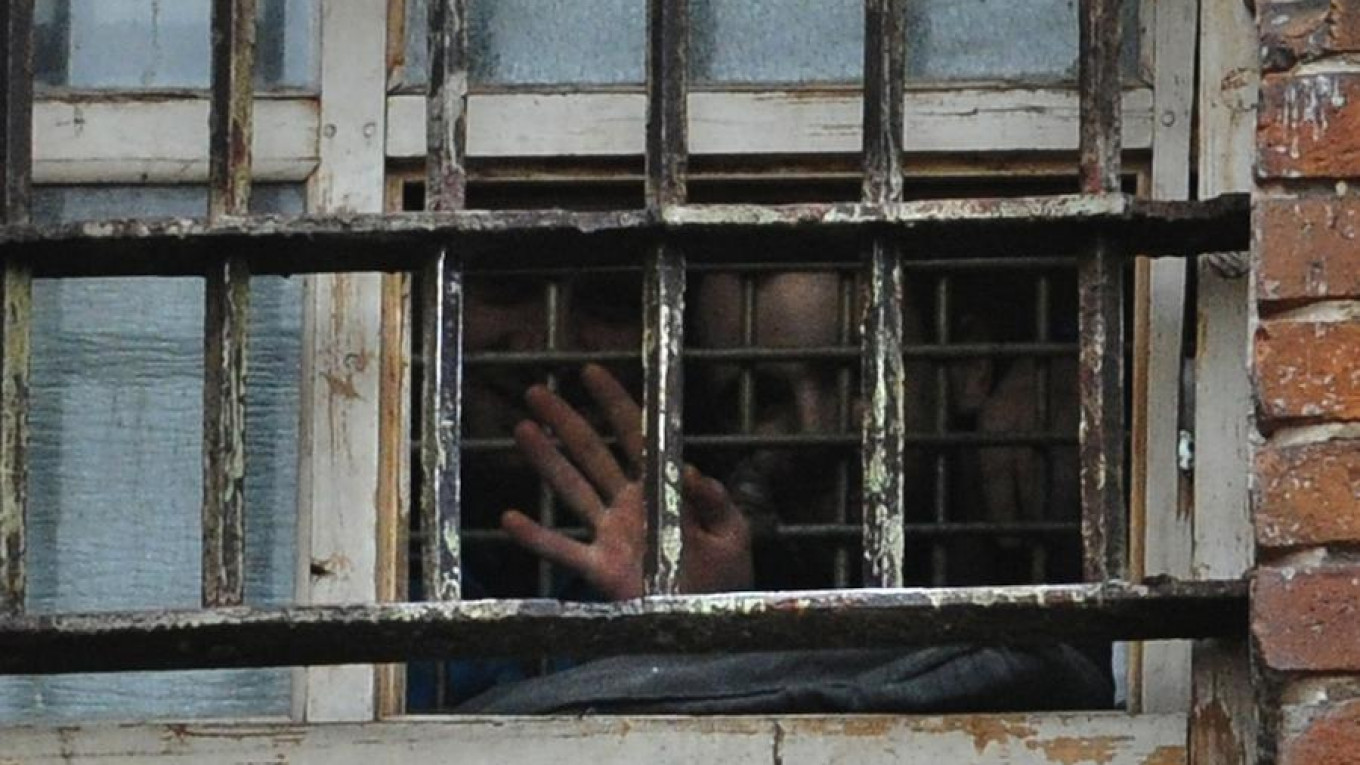A desperate letter from an Arctic prison colony this month has put the spotlight back on Russia's notorious penal system. Ildar Dadin, an opposition activist serving two and a half years in jail for taking part in anti-government protests last year, told his lawyers that he was tortured by his prison guards.
Dadin's allegations, described in a chillingly detailed which he dictated to his lawyer, shocked Russia. When the news reached Moscow, activists urged the capital's prison service to look into the conditions in their own backyard: the city's detention centers. Moscow’s pre-trial detention centers house inmates waiting for a court ruling on their case, which, in Russia, can turn into a long wait.
Today, there are eight functioning centers in the Russian capital. Seven belong to Russia's Federal Prison Service and the other, Lefortovo, to the Federal Security Service (FSB).
The most famous of these is Butyrka, a red-bricked medieval fortress in northern Moscow. Indeed, this is where Dadin was held, before being transported to a prison camp in Russia's Far North. Built under Catherine the Great, Butyrka has housed Russia's most famous political prisoners since the 18th century. Bolsheviks including Cheka founder Felix Dzerzhinsky occupied Butyrka's cells under the tsars, before filling its dungeons with their opponents — from Mandelstam to Solzhenitsyn.
In 2009, Butyrka made global headlines after the death of lawyer Sergei Magnitsky. Magnitsky had been held in appalling conditions, repeatedly denied proper medical attention. His former boss, the exiled fund manager Bill Browder, led a campaign against those responsible for his death. The result was new legislation passed by the U.S. Congress and President Barack Obama imposing visa and financial restrictions against a dozen Russian officials.
Following Magnitsky's death, prison authorities were forced to make improvements to the living conditions inside Butyrka. One of the first areas that was significantly improved was the prison’s medical department. But there is one thing prison authorities have not been able to change: overcrowding. Moscow's prisons are so full that — for the first time in a decade — prison authorities are considering building two new isolation centers on the outskirts of the capital.
According to Sergei Tsygankov, the Federal Prison Service's Moscow director, detention centers are currently overpopulated by 23 percent, meaning that there are 2,000 too many prisoners in the city’s prisons. Independent activists estimate that the real figure is actually higher. Butyrka, Karetnikova says, is overcrowded “by 30-40 percent.”
Officially, each prisoner has the right to four square meters of living space and his or her own bed. In reality, these norms do not exist in any of Moscow's prisons. But in Butyrka, prisoners often have to take turns to sleep on the floor. The construction of new detention centers is unlikely to solve the problem of overcrowding alone.
“The authorities simply want to lock as many people up as they can,” says Karetnikova. “Courts delay rulings as a matter of course, guaranteeing full capacity. One elderly man waited for his sentence for four years in Butyrka. Four years!”
Uncertain Future
When Russian media tycoon Vladimir Gusinsky was arrested and briefly sent to Butyrka in 2000, he was so horrified by the conditions that he fixed the roof with his own money, and bought new bedding for all the prison’s inmates. Sixteen years later, little has changed. 28 year-old Ilya Gushin was sentenced to two and a half years imprisonment for his role in the 2012 anti-government Bolotnaya protests. He spent the first ten months awaiting sentencing in Butyrka, and confirms that conditions there remain dire.
“The heating system was so old it would regularly break down,” he told The Moscow Times. One saving grace about the antiquity of the prison, however, was that it had high ceilings — “you felt there was more breathing space.” Even if authorities had such a desire, which is debatable, modernizing the crumbling facilities at Butyrka would not be easy. “Renovation would be a waste of money,” says Karetnikova.
Other prisoners’ rights campaigners agree the building would serve the city better as a museum rather than a functioning prison. Just a few years ago, there were indeed plans to close the prison and turn it into museum, similar to Moscow's post-industrial gallery space Vinzavod, which is housed in a 19th century brewery. City authorities expressed support for these plans.
In 2011, Moscow's former Culture Minister Sergei Kapkov said that both the city and prisoners would benefit from Butyrka finally shutting its doors: “Moscow would gain an interesting museum and the prisoners would receive better living conditions.”
With no plan of what to do with the 2000 prisoners, the Butyrka Museum never came into existence. Instead, prison authorities opened a limited exhibition in one of the building's four towers. One day, campaigners hope, Butyrka will finally open all its doors to the public. But for now, its centuries-old cells continue to be filled with inmates, and more inmates, waiting — some for years — for a court to decide whether they are guilty or not.
A Message from The Moscow Times:
Dear readers,
We are facing unprecedented challenges. Russia's Prosecutor General's Office has designated The Moscow Times as an "undesirable" organization, criminalizing our work and putting our staff at risk of prosecution. This follows our earlier unjust labeling as a "foreign agent."
These actions are direct attempts to silence independent journalism in Russia. The authorities claim our work "discredits the decisions of the Russian leadership." We see things differently: we strive to provide accurate, unbiased reporting on Russia.
We, the journalists of The Moscow Times, refuse to be silenced. But to continue our work, we need your help.
Your support, no matter how small, makes a world of difference. If you can, please support us monthly starting from just $2. It's quick to set up, and every contribution makes a significant impact.
By supporting The Moscow Times, you're defending open, independent journalism in the face of repression. Thank you for standing with us.
Remind me later.






